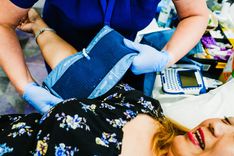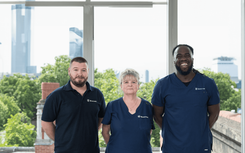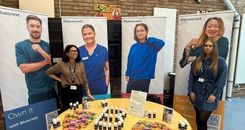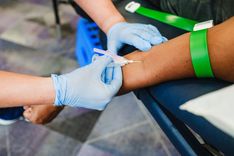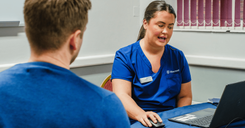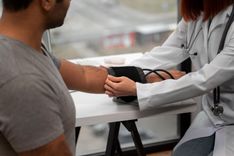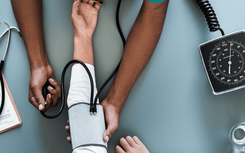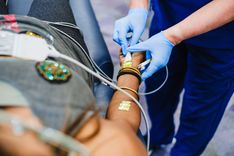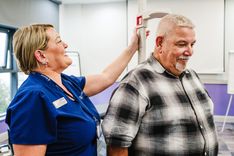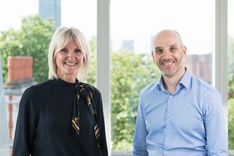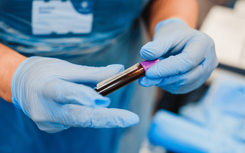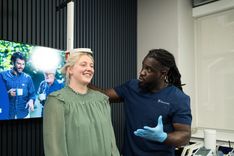
Cancer myths, misconceptions and misinformation
There are approximately 19 million new cancer cases diagnosed worldwide each year, with the UK accounting for 392,000 of those. This figure represents about 2% of the global total and breaks down to:
-
Over 1,070 new diagnoses every day
-
Roughly 1 person diagnosed every 90 seconds
The impact of cancer in the UK spans across all areas of life, affecting the individuals, their families, the healthcare system and the economy. It not only has the obvious physical effects but also the emotional and financial ones too while individuals and their families navigate through diagnosis and treatment, this is why it is so important to ensure the information you are consuming is correct and reliable.
We now live in a time where we have access to an overabundance of information that spreads quickly through digital and physical environments. This includes both accurate and inaccurate information and it can lead to a lot of confusion, scaremongering, mistrust in health organisations and ultimately can have a huge impact on people’s decision making when it comes to treatment. This is what is being to as an ‘infodemic’, a rapid and widespread increase of both accurate and inaccurate information – particularly during a disease outbreak.
Common myths and misconceptions
1. Cancer is a death sentence
Many cancers are treatable, especially when detected early. Survival rates have improved significantly, with some cancers having 5-year survival rates over 90%.
2. Eating sugar makes cancer grow faster
While cancer cells consume more glucose than normal cells, there is no evidence that sugar directly causes cancer to grow faster. However, a high-sugar diet can lead to obesity, which is a risk factor for some cancers.
3. Cancer surgery or biopsies can spread the disease
Surgeons take special precautions to prevent cancer from spreading during procedures.
4. If no one in my family has cancer then I'm safe
Most cancers are not inherited, only 5-10% of cancers are strongly linked to inherited genetic mutations. Lifestyle and environmental factors play a larger role in many cases.
5. Antiperspirants and deodorants cause breast cancer
There is no scientific evidence supporting this claim.
6. Cancer always comes back
Many people are cured of cancer and never experience a recurrence. It depends on the type, stage and treatment.
7. You don't need screening if you feel fine
Many cancers don’t cause symptoms in early stages. Regular screening can detect cancer before symptoms appear.
8. Only older people get cancer
While cancer risk increases with age, it can affect people of all ages, including children and young adults.
9. The cure for cancer is being hidden
There is no single cure for cancer because it isn’t one disease but rather a group of over 200 different types, each with unique characteristics. Treatments are constantly evolving, and many are publicly funded and researched.
10. Chemotherapy kills more than it cures
While chemotherapy can have serious side effects, it is a scientifically validated treatment that has saved millions of lives. It is often used in combination with other therapies.
11. Injuring your breast can cause breast cancer
There is no evidence that trauma to the breast causes cancer. However, an injury might draw attention to a lump that was already there.
12. Medical scans and flying increase cancer risk significantly
The radiation exposure from medical imaging or flying is very low and not enough to significantly increase cancer risk.
How you can spot misinformation about cancer
-
Check the source: Is the source a reputable organisation? Look for websites ending in .nhs.uk, .gov.uk, .ac.uk or .org. It is advised that you also be cautious of social media posts, blogs or commercial sites promoting products or 'miracle cures'.
-
Look for evidence: Reliable claims should be backed by scientific studies, clinical trials or expert consensus. Be wary of anecdotal evidence like 'it worked for me' stories without scientific backing.
-
Watch for sensational language: Headlines like 'Cure for cancer found' or 'Doctors don't want you to know this' are red flags. Misinformation often uses emotional or shocking language to grab attention.
-
Check the date and location of the information: Medical knowledge evolves, so make sure the information is recent and that it is relevant to your location.
-
Cross-check with trusted sources: Use reliable platforms such as Cancer Research UK, NHS Cancer Services, Macmillan Cancer Support or Cancer FactFinder (A Harvard tool to verify cancer claims)
-
Consult a professional: Always discuss new treatments or claims with your GP, oncologist or cancer nurse before making any decisions.
Real-world impact of misinformation
Misinformation around cancer treatment can harm the psychological health of individuals with cancer and their care networks by increasing distress, self-doubt or false hope. Many patients report feeling overwhelmed by conflicting advice, especially when it comes to ‘miracle cures’ and alternative treatments.
If patients decide to act on the misinformation it can be potentially harmful to their physical health by deviating from evidence-based care plans or using untested supplements, diets or therapies commonly found on social media. Some misinformation is spread intentionally (disinformation) to sell unproven or harmful products such as fake supplements or detox regimes. Vulnerable individuals may spend large amounts of money on ineffective or dangerous treatments because of this disinformation which delays proper medical care. While some natural compounds are being studied for potential benefits, none have been proven to cure cancer. Some can even be harmful or interfere with conventional treatments so it is important that treatment options are discussed with a professional.
The key thing to remember when looking at any medical information online is to look at where the information is coming from, if it isn’t from a reputable source then does the information have scientific backing? In any situation where you are unsure on the information you have found, reach out to your GP, oncologist or cancer nurse before making any decisions.
Want to find out insights about your health? Book your health assessment today!
To book your health assessment, click here
For Vitality customers, book here.
For Benenden customers, book here.
Need help? You can reach out to our corporate team on 0808 168 9219

Tiegan Hill
Corporate Marketing Assistant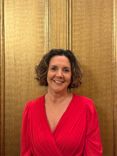
Anna Jones
Chief Nursing Officer, Bluecrest





